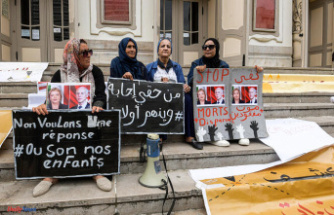The draft of the new Infection Protection Act presented by the federal government does not yet meet all the expectations of the federal states. Mecklenburg-Western Pomerania's Health Minister Drese also sees a need for change.
Schwerin (dpa/mv) - After the Corona special conference with her counterparts, Mecklenburg-Western Pomerania's Health Minister Stefanie Drese (SPD) still sees the federal government as having an obligation to tighten the criteria for fighting the pandemic in autumn. Even after the consultations on Tuesday, there was still no clarity on future test management. "There is a need for further discussion," said Drese after the ministerial meeting.
Since the beginning of July, there have only been free quick tests in exceptional cases. Since then, numerous test centers have closed, so that there is a great fear that there could be a lack of capacity if the test obligation is extended in autumn.
Drese announced that the Corona Expert Council she had set up would have another meeting next Monday. His proposals are then the basis for an autumn-winter plan with protective measures for the country, which the cabinet will discuss at the end of August. The primary goal remains to protect particularly vulnerable people, especially old or previously ill people, from serious illnesses and to ensure the functionality of the health system.
She expects clear and practicable guidelines from the new Infection Protection Act, the draft of which has been available for a week and still has to go through the Bundestag and Bundesrat. The federal states are concerned with being able to react quickly to changing infection situations according to uniform guidelines fixed by the federal government.
In the future, this will also mean that different protective measures can be ordered in different countries depending on the intensity of the infection. "For a comprehensible and uniform handling of the virus, we need parameters that are as precise as possible that we can use as a guide. These must apply in Mecklenburg-Western Pomerania as well as in Bavaria or Hamburg," Drese made her demand clear. Corona deaths in the respective population could also be used as an important key figure in the future. But that requires a solid database, stressed Drese.
The federal government had presented the draft for the new Infection Protection Act last week. Corona protection measures are anchored in it, which should apply from autumn. This includes a nationwide mask requirement on buses, trains and planes. In addition, masks and tests will be compulsory in hospitals and care facilities from October. Depending on the infection process, the federal states should then also impose mask requirements in publicly accessible indoor areas or in local transport and be allowed to prescribe tests in schools or daycare centers. Dreses is convinced that vaccinations and tests will continue to be of great importance in combating the pandemic.












